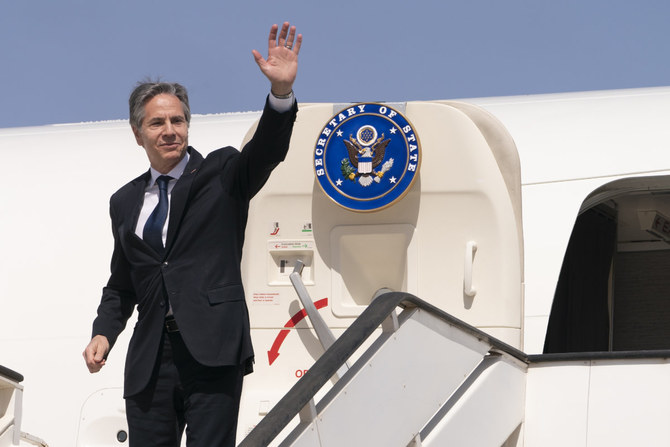
- ARAB NEWS
- 05 Jul 2025

The West’s Middle Eastern allies have been notably lukewarm in their condemnation of Vladimir Putin’s invasion of Ukraine. Instead, they have hedged their bets. Most approved, and some even co-sponsored, the toothless UN General Assembly resolution of March 2 calling for immediate withdrawal but, at the same time, none have joined the Western-led sanctions of Russia. Some of the most powerful US allies have gone further and pushed back against the West.
Israel and Turkey have both maintained their close ties to Moscow, proposing themselves as mediators rather than joining the anti-Russian alliance. Saudi Arabia has declined Washington’s request to increase oil production to lower prices impacted by reduced Russian supply. The UAE has been particularly obstinate. It joined Riyadh in refusing to pump more oil, while further thumbing its nose at Washington by welcoming exiled Russian oligarchs to Dubai and hosting Moscow’s client Bashar Assad for the Syrian president’s first visit to an Arab capital in more than a decade. As one Gulf analyst noted, the clear message to the West was: “This isn’t our war.”
Western governments may be frustrated, but this assertiveness from Middle Eastern leaders is far from surprising. The Ukraine crisis may have exposed hidden fault lines between the West and its allies, but the causes are deep-rooted and not going away.
The first factor is the well documented shift in global power over the past decade away from US domination toward a multipolar world. The economic rise of China, the military assertiveness of Russia and the relative decline of US influence mean Washington has less clout globally. The Middle East is far from alone in refusing to join the US-led sanctions regime on Russia, with almost all states in Africa, South America and Asia being similarly reluctant. This is a far cry from a few decades ago, when Western power seemed undisputed and Washington was able to corral the world into isolating and sanctioning Saddam Hussein for a similar unprovoked invasion.
The Ukraine crisis may have exposed hidden fault lines between the West and its allies, but the causes are deep-rooted and not going away.
Christopher Phillips
In the Middle East, the shift in power has presented traditional Western allies with choices other than the US. The UAE, Saudi Arabia, Israel and Turkey have all enhanced their economic and military ties with both China and Russia. They have not displaced Washington, which remains the primary partner. But the existence of other options has empowered the Middle Eastern players, providing new leverage to extract greater concessions from the US and the confidence to defy the White House if necessary.
The shift in power has come amid the US military retreat from the Middle East, creating a vacuum that has been filled by these increasingly assertive regional governments. Since the high point of American intervention in Iraq in 2003, Washington has been reluctant to get involved in Middle Eastern conflicts, leaving space for others to do so instead. Iran increased its already sizable presence in regional conflicts, prompting its rival Saudi Arabia to do likewise to counter Tehran. They were joined by the UAE, Turkey and Qatar, all now amplifying their regional involvement either directly or via proxies in the absence of the previously dominant US.
The second factor is the increased frustration felt by Middle Eastern governments toward their Western allies’ policies in the region. All these governments have different priorities, but all can easily find a list of grievances with Western actions over the last decade. For Turkey, these are inaction in the Syrian civil war, backing Kurdish groups against Daesh, and accepting the Egyptian military’s toppling of the Muslim Brotherhood government in 2013. For Israel, complaints focus on agreeing to the 2015 nuclear deal with Iran in the first place and then renegotiating it today. For Saudi Arabia and the UAE, complaints include the Iran nuclear agreement and too little support for their efforts in Yemen.
The list of grievances goes on. As a result, each is far less trusting of Western governments than it once was. While none of these countries are interested in severing ties with Washington, knowing they remain key security and economic allies, whatever deference once existed has long since dissipated.
Middle Eastern governments are becoming far more transactional in their alliances and are increasingly reluctant to subordinate their interests to those of their Western allies. This has been a long time coming and Western governments should not be surprised. While Washington and other Western capitals might have expected Riyadh, Abu Dhabi, Tel Aviv and Ankara to fall in behind them in global crises, Ukraine has exposed the dangers of taking such allies for granted. Times have changed and, whatever the outcome of the Ukraine war, Middle Eastern independence and assertiveness is likely here to stay.
• Christopher Phillips is professor of international relations at Queen Mary University of London, author of “The Battle for Syria” and co-editor of “What next for Britain in the Middle East?” Twitter: @cjophillips